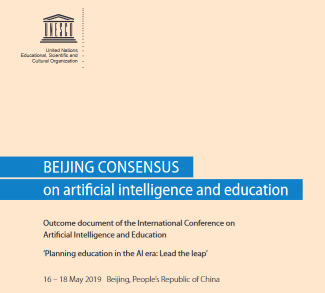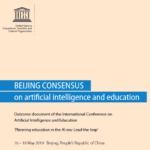
The Beijing Consensus on Artificial Intelligence and Education, developed during the International Conference on Artificial Intelligence and Education, provides comprehensive guidelines and recommendations for integrating AI into global education systems. It highlights the importance of developing AI in ways that support educational goals, respect human rights, and use technology to improve learning outcomes in diverse educational settings.
- Advocates ethical use of AI in education, highlighting respect for privacy and human rights.
- Emphasises the potential of AI to personalise learning and improve accessibility for all students.
- Calls for international collaboration on AI research and development in education.
- Stresses the importance of teacher training in AI tools and pedagogies.
- Encourages the development of AI literacy among students as part of the curriculum.
- Recommends policies to ensure equitable access to AI education resources.
- Suggests regular evaluation of the impact of AI on education to inform ongoing adjustments to policy and practice.
The Consensus invites governments and other stakeholders in UNESCO Member States, in accordance with their legislation, policies and practices, to consider implementing these measures in response to the educational opportunities and challenges presented by AI. It underpins almost all AI education guidelines.
Read on to find out more: https://unesdoc.unesco.org/ark:/48223/pf0000368303
